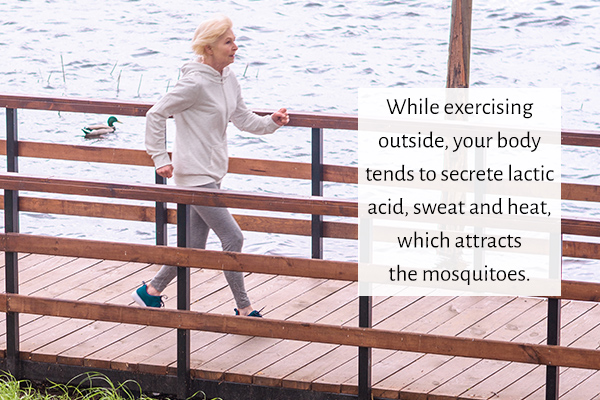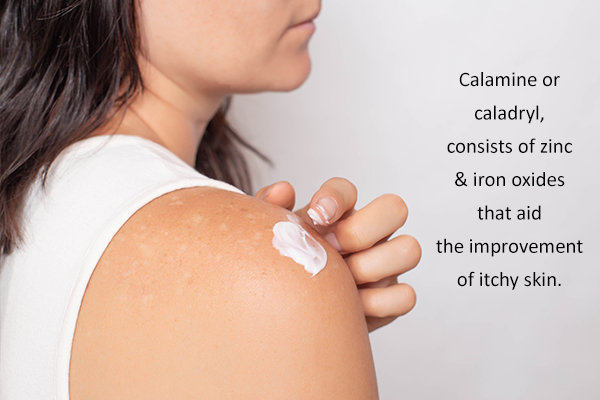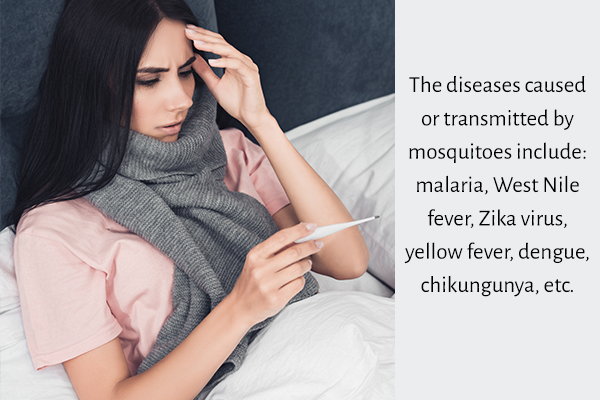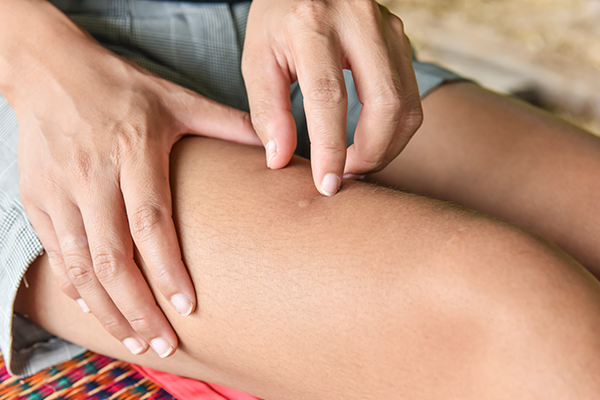In this article:
Mosquitoes cause the highest number of insect bites, often acting as vectors for various diseases that pose a risk to public health. Mosquito-borne diseases affect around 700 million people worldwide, causing one death per every 17 people in a year. (1)

Multiple factors such as carbon dioxide, warmth, moisture, lactic acid, and estrogen are known to attract mosquitoes. (2)
How Do Mosquitoes Bite?
Female mosquitoes generally cause mosquito bites for feeding on your blood. The mosquito inserts its proboscis, a straw-like structure, into your skin to search for a blood vessel.
Once the proboscis is in contact with a blood vessel, the mosquito releases saliva into the wound to prevent the clotting of the blood. When this contact lasts for more than 6 seconds, the body reacts to the saliva, causing localized swelling, redness, and itching.
Causes of Mosquito Bites

Mosquito bites are a result of female mosquitoes feeding on your blood. Some factors that increase the incidence of mosquito bites include:
- Warm climate: Sweating due to warmer temperatures makes you more prone to mosquito bites.
- Exercising outside: While exercising, you tend to secrete lactic acid, sweat, and heat, which attract the mosquitoes.
- Dawn or dusk: The mosquitoes are most active between sunset and sunrise.
- Water bodies: Since mosquitoes reproduce in stagnant water, such as lakes and ponds, spending time near these water bodies can increase the chances of being bitten by a mosquito.
- Lack of protection: Stepping outdoors without applying a mosquito repellent or wearing full-cover clothing can make you more susceptible to mosquito bites.
Symptoms Associated With Mosquito Bites
A mosquito bite may manifest the following signs:
- Puffy, white-reddish bump on the skin, appearing within a few minutes of the bite
- Hard, reddish-brown, itchy bump after a day of the bite
- Blisters
- Dark spots that resemble bruises
- Swelling around the eye (if the face was bitten)
Additionally, if you have an immune system disorder, you may experience:
- A large area of redness and swelling
- Hives
- Swollen lymph nodes
- Low-grade fever
- Headache
Medical Treatment for Mosquito Bites
The standard medical treatments for mosquito bites aim at relieving the associated itching.
1. Steroid creams
Use a nonprescription 1% hydrocortisone cream such as Cortaid three times a day to help relieve the itch. Alternatively, you can apply a baking soda paste until you get the steroid cream.
You can also use your fingernail, pen cap, or any other object to directly apply a sharp and firm pressure to the bite. Doing this for 10 seconds can temporarily reduce the itch.
2. Medicines
In case you have a severe reaction to the mosquito bite, take a long-acting antihistamine such as fexofenadine, cetirizine, or loratadine to help subside the reaction.
3. OTC medications

You can buy the following itch-relieving drugs from your local pharmacy without a doctor’s prescription.
- Calamine (Caladryl): It contains zinc and iron oxides that help improve itchy skin. Caladryl also acts as a mild topical analgesic to relieve pain. Calamine lotion is available as an OTC product.
- Ibuprofen or hydrocortisone: These medications help alleviate the swelling. Hydrocortisone also improves itching.
- Antihistamines: These compounds prevent the binding of histamines to receptors to relieve itching and normalize the blood vessels. Antihistamines are mostly used for curbing the itch triggered by an allergic response and are available as topical creams or gels and oral pills like Benadryl.
- Epinephrine: This is only required if the mosquito bite causes difficulty in breathing. It is vital to consult your doctor for the correct way and time of using an EpiPen or epinephrine injection.
Diagnosing Mosquito Bites
Mosquito bites can be easily identified visually. If you develop an allergy to mosquito bites, the doctor may assess the redness, swelling, and itching post-bite.
Since mosquitoes transmit various diseases, the doctor may advise urine or blood tests to detect the presence of pathogens or pathogen antibodies in your blood.
Mosquito-Borne Illnesses

Mosquitoes act as vectors of various bacteria, viruses, and parasites, transferring the pathogens into your body through the saliva while biting.
Diseases caused or transmitted by mosquitoes include:
- Malaria: Caused by Plasmodium parasites, this disease is transmitted through the bite of the female Anopheles mosquito and causes recurrent fever with chills and headaches. Pregnant women are more likely to be bitten by Anopheles gambiae, the primary malaria vector in Africa. (3)
- West Nile fever: This illness is characterized by flu-like symptoms and nervous system problems. Between 1999 and 2010, around 2.5 million people were affected by this disease, with more than 12,000 cases of meningitis or encephalitis, causing over 1,300 deaths. (4)
- Zika virus: This condition causes fever, rash, and joint pain, which improves within a week. However, Zika can cause complications in subsequent pregnancies in women. It has been associated with an increased risk of microcephaly. It is advised to take proper rest and keep yourself hydrated when infected with Zika. You may take acetaminophen to reduce fever. (5)
- Yellow fever: Common in the subtropical regions of South America and Africa, yellow fever causes swelling in the spinal cord and the brain.
- Dengue: This disease is most prevalent in tropical and subtropical areas. Its symptoms include rash, high fever, muscle soreness, and joint pain. In extreme cases, it may also result in severe bleeding, shock, and death. Dengue is the most frequent mosquito-borne viral illness, with 3.5 billion people at risk of infection, 50–100 million new cases, and 20,000 deaths in a year. (6)
- Chikungunya: This disease causes headaches, rash, joint pain, and fever, requiring proper bed rest and fluids for treatment. It is best to avoid infection by taking precautionary measures such as insect control in endemic countries. (7)
- Eastern equine encephalitis: The causative virus is found in birds and bird-biting mosquitoes. The infection results in a stiff neck, fever, headache, and lethargy. In some cases, it may also cause encephalitis and brain inflammation, which may be fatal.
- St Louis encephalitis: Mosquitoes act as vectors to transmit this disease from bird to man and other mammals.
Risk Factors for Mosquito Bites
Factors that increase the likelihood of a person being bitten by a mosquito include:
- Warmer body temperature
- Male gender
- Children
- Breath odor
- Hyperventilating
- Exercising outdoors
- Sweating
- Perfumed shampoos and soaps
Complications of Mosquito Bites

In extremely rare cases, a mosquito bite may cause the following problems:
- Anaphylaxis: A severe allergic reaction to the mosquito’s saliva can result in life-threatening symptoms that develop rapidly. This is known as the Skeeter syndrome and is common in young or immune-compromised individuals. If you are prone to this condition, you may need to carry an EpiPen in case of future bites.
- Hypersensitive reaction: This is characterized by extreme skin reactions, accompanied by symptoms such as skin necrosis and fever. (8)
When to See a Doctor
Visit a medical practitioner if any of the following symptoms develop after a mosquito bite:
- Spreading redness, especially if it has been 2 days
- Fever
- Body aches
- Fatigue
- Sickness
- Scab that contains pus
- Severe itching that does not subside on use of steroid creams
It is best to consult a doctor if you have traveled to a high-risk area recently and developed a fever. It is also advisable to consult a doctor before traveling abroad to check if you need any prophylactic medications for diseases transmitted by mosquitoes.
Final Word
Mosquito bites are a common source of discomfort and itching and tend to become red and swollen, especially after scratching. In some cases, the mosquito bite may give rise to an infection.
It is best to prevent yourself from mosquito bites by removing any stagnant water that accumulates in flowerpots, birdbaths, old tires, gutters, etc.

- Was this article helpful?
- YES, THANKS!NOT REALLY


